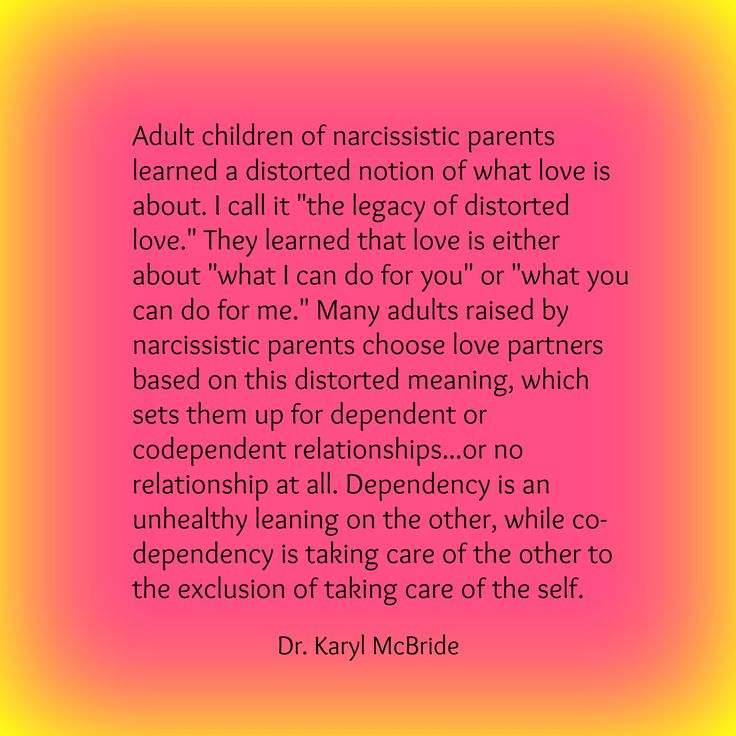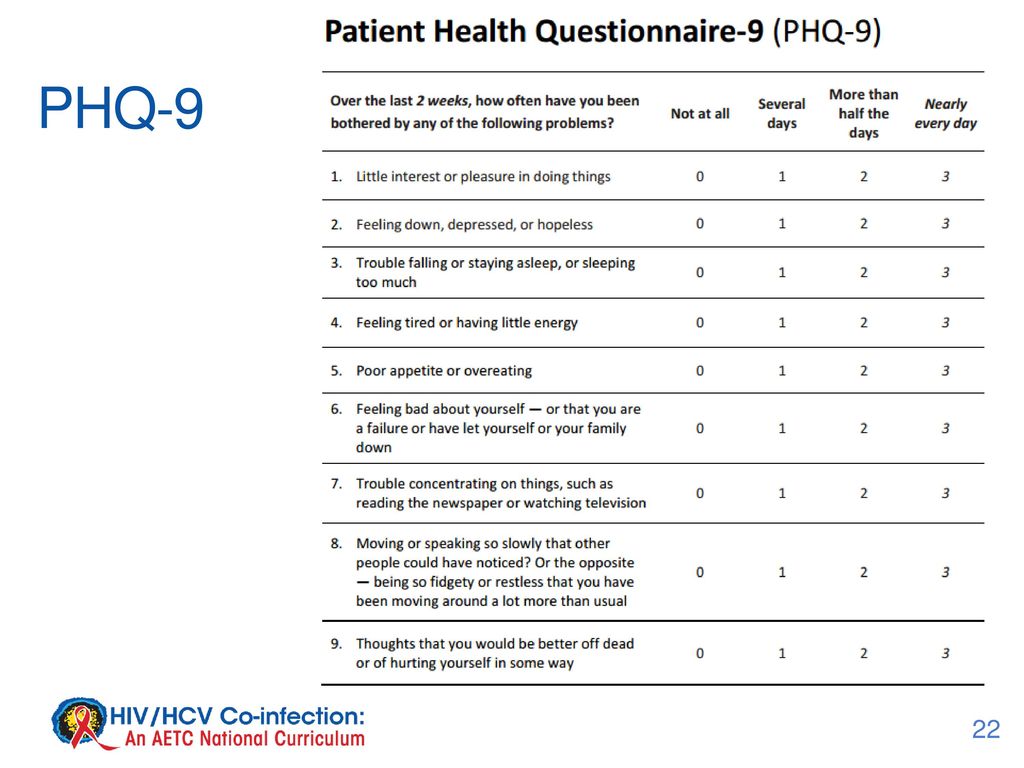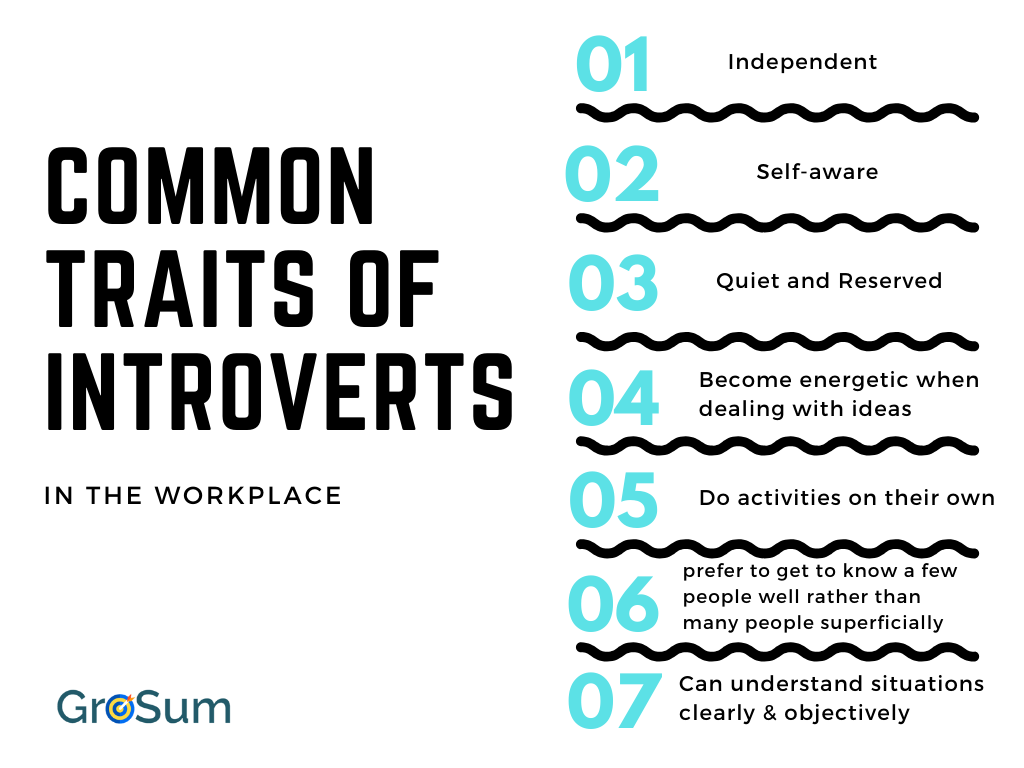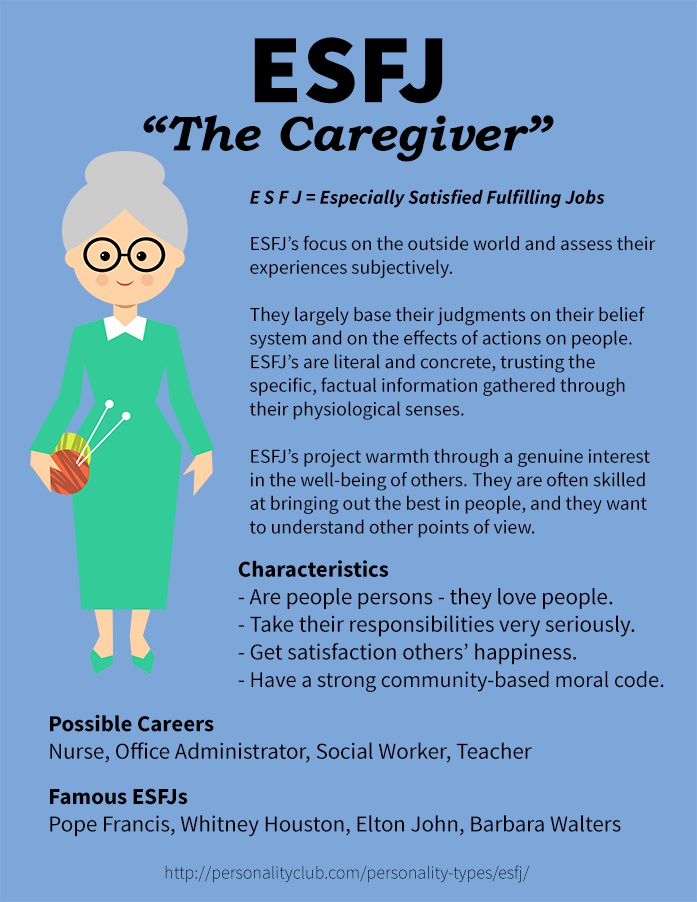Narcissistic fathers and their daughters
17 Things Narcissistic Fathers Do To Their Daughters
Narcissistic personality disorder (NPD) results in terrible emotional abuse for the victims of a toxic narcissist. Anyone who suffers at the hand of a narcissist is left feeling inadequate, confused, and in doubt of their own abilities. It doesn’t matter the nature of your relationship with a narcissist, you will feel the sting of the abusive tactics. If you’re the child of a narcissist, however, the abuse is complicated by the fact that you have never known another way. Moreover, the special nature of the relationship between a father and his daughter means that such abuse can continue to affect her for the rest of her life.
There are many ways that narcissistic fathers abuse their daughters. All are related to the father’s incessant need for external validation. To him, his own daughter is nothing more than a source of narcissistic supply. He won’t hesitate to abuse her as he would any other victim of his toxicity.
The legacy of narcissistic abuse is one of emotional devastation, particularly for a daughter whose first relationship experience with a man is the relationship she has with her toxic father. It can leave her with a lifetime of scars, and it’s important to recognize the form that abuse can take. Here are 17 ways that a narcissistic father harms his daughter.
Table of Contents
1. Narcissistic Fathers are HypercriticalNarcissists, in general, are hypercritical of everyone they encounter. It’s part of how they make themselves feel superior. For a daughter, however, this is her first relationship with a man, and what this teaches her is that the males in her life have a right to be critical of her. It undermines her ability to trust men in general, and it makes her wary of intimate relationships. It also leaves her vulnerable to more abuse.
It also makes her vie for her father’s attention and approval, but given that he’s a narcissist, she’s not likely to get that from him. The effects of his criticism are that his daughter’s self-esteem and confidence are damaged to the extent that she will have difficulty feeling good about herself.
The effects of his criticism are that his daughter’s self-esteem and confidence are damaged to the extent that she will have difficulty feeling good about herself.
As an adult, the daughter of a narcissistic father often seeks out similar personality types in a futile attempt to remake the relationship she had with her father. She’s trying to make it work out this time in her favor. She wants to feel as though her father loved her.
The problem is that it continues the cycle of abuse as she tries to work out issues she didn’t even know she had as a result of the hypercritical nature of her father. She simply can’t feel good about herself because she constantly hears the critical voice of her father in her head.
What’s more, the daughter doesn’t know this was abusive behavior until well after it has had its toxic effect. By the time she understands there was something wrong with her father, the damage is done.
2. Narcissistic Fathers Invalidate Their DaughtersNarcissistic fathers teach their daughters that they are worthless. They constantly invalidate their ideas and opinions. They send a clear message to their daughters that what they have to say is not valid.
They constantly invalidate their ideas and opinions. They send a clear message to their daughters that what they have to say is not valid.
They teach their daughters that what is valuable about them, if anything, is not their intelligence or opinions. They invalidate the way they look and behave. They constantly undermine the developing sense of self-worth in the young child.
That has dramatic consequences later in life. The daughter is unable to establish successful intimate relationships. They may discard their ideas for a career because they don’t believe they can do it.
They continuously look for a way to recreate the relationship with their father as they try to form relationships in adulthood. They never feel confident about their abilities, and they often fail to live up to their full potential as a result of this abuse.
3. Narcissistic Fathers Use Triangulation to Control Their DaughtersNarcissists, in general, frequently use triangulation to manipulate the people in their lives and create drama. Triangulation is an abusive tactic whereby a narcissist will tell one person one thing and another person something entirely different.
Triangulation is an abusive tactic whereby a narcissist will tell one person one thing and another person something entirely different.
The goal of triangulation is to undermine trust, create confusion, and destroy interpersonal relationships. Narcissists will often use this tactic within the family so that family members won’t feel comfortable talking amongst themselves or supporting one another.
Triangulation is devastating for the daughter of a narcissist because it undermines her ability to trust other people. They can form healthy interpersonal relationships within their family, and that carries over to their relationships with people outside the family.
Siblings often become estranged due to this type of abuse. The relationships you form in the early years of your childhood with people within your family are models for the relationships you will form later on in life. The daughter of a narcissistic father learns she cannot trust herself, people close to her cannot be trusted, and she cannot confide in her narcissistic father.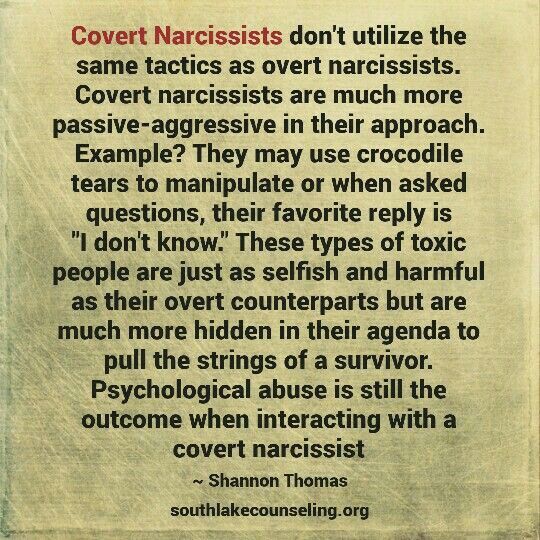
She literally has no one she can turn to in order to express her emotions. She has no one to tell her deepest thoughts to or express her greatest fears. The toxic triangulation her father exposed her to has taught her that no one can be trusted.
4. Narcissistic Fathers Withdraw Their LoveThe love of a narcissist is conditional. When you’re doing what they want, they love you, but if you cross them, you are dead to them. For the daughter of a narcissist, this causes her to distrust the people she loves.
She learns early on that she must perform to receive love, and even if she does so successfully for a while, that love can be withdrawn at any time. She learns to walk on eggshells around those to whom she is close.
She also learns that love equates with how well she behaves. This makes her more submissive in her relationship with her father and anyone else in her life. She has learned that love can easily disappear, and that generates a low level of constant anxiety.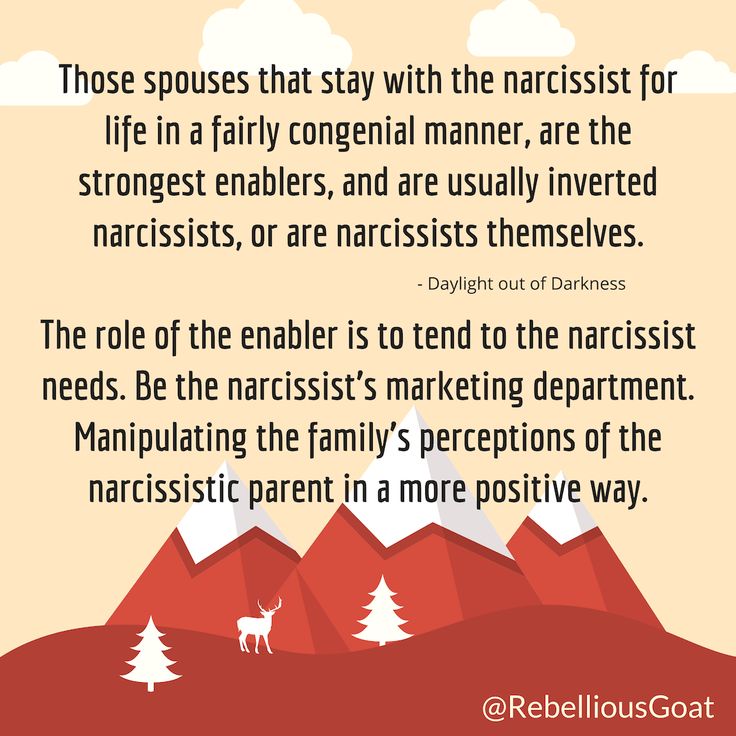
These patterns continue into her adult relationships, and she often finds herself living with another abuser. It’s another way that abuse perpetuates abuse.
5. Narcissistic Fathers Send a Message of “Never Enough”This is one of the more toxic effects of narcissistic abuse. The daughter of a narcissist is learning every day in every way that she is never enough. She can’t do enough to please her father.
She will never receive the love and admiration she craves from her father no matter what she does or says. Daughters who receive that message often become overachievers. They can go on to have great success in life, but they never get the recognition they want from their father.
It undermines their self-confidence and creates that negative inner voice that can be so destructive to their self-esteem. They become dependent on external validation, though for different reasons than their father.
6. Narcissistic Fathers Condition Their Daughters to Interpersonal AbuseAnother incredibly toxic result of narcissistic abuse is that it conditions their daughter to abuse. They often don’t recognize what their father is doing as abuse, and when they are adults, they won’t see it in their intimate partners either.
They often don’t recognize what their father is doing as abuse, and when they are adults, they won’t see it in their intimate partners either.
They learn that abuse is normal and expected in close personal relationships. Their father has normalized the abuse, and since they are also looking to ‘fix’ the relationship they had with their father, they often end up with abusive partners.
What’s more, they can go on to abuse their own children in a similar fashion. Narcissistic abuse was the model they had in childhood for how to raise a child, and they continue the pattern.
7. Narcissistic Fathers Rob Their Daughters of Self-ConfidenceAll of these tactics undermine the self-confidence of the daughter of a narcissistic father. Instead of building her up so she can become an independent, functional adult, her father is always tearing her down.
Narcissists don’t want their children to feel self-confident because they don’t want them to be independent. They want them to rely on their parent. That feeds their delusions of superiority, and submissive children are an excellent source of narcissistic supply.
They want them to rely on their parent. That feeds their delusions of superiority, and submissive children are an excellent source of narcissistic supply.
When a father does this to a daughter, it can easily undermine her self-confidence for the rest of her life.
8. Narcissistic Fathers Make Their Daughters Crave Male AttentionNot only do these abuse tactics make the daughter of a narcissistic father crave male attention, but it also makes them less discerning with regard to the type of male attention. That leaves them vulnerable to abusive relationships in the future.
The daughter of a narcissistic father has been taught that her father’s attention is paramount, and she wants so badly to please him. As a result, she often competes for male attention in unhealthy ways.
In some cases, the daughter of a narcissistic father will do anything to get that male attention. She can demean herself or put herself in danger as a result.
9. Narcissistic Fathers Undermine Their Daughter’s Developing Sense of Identity
Narcissistic Fathers Undermine Their Daughter’s Developing Sense of IdentityErik Erikson was a German-American psychologist in the early 20th century who defined the stages of psychological human development. He identified eight stages that start at birth and continue until death.
He identified adolescence as the stage where an individual is developing their sense of identity. Of course, the earlier stages play into whether an individual will develop a strong sense of identity or suffer from role confusion.
Erikson defines identity as the basic organizing principle that continues to develop throughout your lifetime. A strong sense of identity helps an individual create a continuous self-image that stays constant even as you experience new things and add new aspects to your self-image.
Identity serves the function of giving you a sense of uniqueness and continuity. It is critical for the good mental and physical health of adolescents. Without it, you will remain uncertain of who you are and your role in the world. You’re likely to drift from one job and relationship to another, and you’ll most likely feel disappointed and confused about your life. This is the fate of the daughter of a narcissistic father unless she seeks help.
You’re likely to drift from one job and relationship to another, and you’ll most likely feel disappointed and confused about your life. This is the fate of the daughter of a narcissistic father unless she seeks help.
Narcissistic fathers also teach their daughters that they don’t have boundaries. Narcissists, in general, ignore or constantly challenge the personal boundaries of everyone in their life. They see other people as mere extensions of their own identity, and that makes them feel entitled to violate their boundaries.
For narcissistic fathers, they see their children as their possessions which makes them feel even more entitled to violate their personal boundaries. Their daughters learn they don’t have a right to expect others to respect them and treat them well.
This is another way narcissistic fathers make their daughters more vulnerable to abusive relationships in adulthood.
Narcissists, in general, disregard everyone else’s needs. They believe everyone in their life, including their daughter, should be focused on the narcissist’s needs. They believe themselves to be superior to other people, and that’s why everyone should care about them even though they don’t care about anyone in their life.
Their daughters learn to put their own needs aside in order to keep the peace and please their father. They may even come to believe they don’t have a right to have needs. This leaves them vulnerable to abuse, but it can also cause them to ignore important physical and mental needs.
That, in turn, can affect their overall health and longevity. It’s another vicious cycle that feeds upon itself.
12. Narcissistic Fathers Devalue Their DaughtersNarcissistic relationships typically involve three stages. The first is idealization, the second is devaluation, and the third is the discard. Most narcissistic parents start out idealizing their children. They are the most beautiful, the most intelligent, the fastest developing, and so on.
Most narcissistic parents start out idealizing their children. They are the most beautiful, the most intelligent, the fastest developing, and so on.
They set unrealistically high expectations for them as a result. Of course, the children can’t possibly live up to those expectations, and sooner or later, they will disappoint their narcissistic parent. When that happens, the devaluation stage begins.
For the daughter of a narcissistic father, the devaluation stage can have devastating effects on her self-esteem. He may be critical of her weight, her appearance, and her abilities. He makes her feel worthless, and that has effects that can last a lifetime.
13. Narcissistic Fathers Exploit Their Daughters’ TalentAs mentioned, narcissists see the people around them as extensions of their own identity. That means they will exploit and use any talents that their children may have to their own advantage.
They hate not being in the spotlight, so if their daughter has a talent that everyone is captivated by, the narcissist wants to somehow take credit to bring the spotlight back to them. They will also use their daughter’s talent to get ahead in life.
They will also use their daughter’s talent to get ahead in life.
If she is a good performer and seeks out a career as a singer, for example, the narcissistic father may demand to be her manager and even steal money from her. The narcissist feels entitled to anything she is or can gain given that he participated in giving her life.
14. Narcissistic Fathers Teach Their Daughters Learned HelplessnessWhen a narcissistic father devalues, criticizes, and invalidates his daughter, he is doing so because he wants her to become dependent on him. He wants her to ask his opinion about everything she does for the rest of her life.
He wants her to need his assistance. He is, in effect, teaching her to be helpless so that she will remain dependent on him. He won’t give her the chance to prove she can do it for herself because he doesn’t want her to feel confident, ever.
This is another way he teaches her to be a victim. It leaves her vulnerable to abusive relationships throughout her life because she is looking for someone to help her.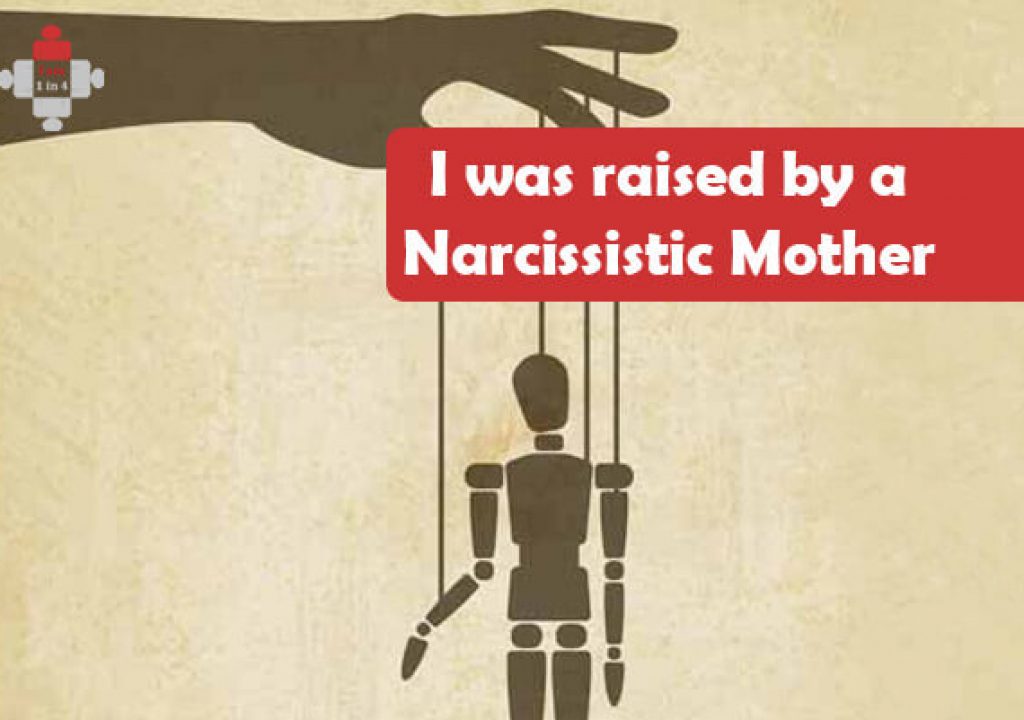
Narcissistic fathers will admire the beauty of their daughters and use it to their advantage. They will teach their daughters that they must maintain their beauty or they will be worth nothing. This is, in effect, how the narcissist feels inside so it’s a form of projection.
They are teaching their daughters that their internal qualities like good character, honesty, and kindness mean nothing. It is their beauty that is paramount.
The narcissist also loves to take credit for his daughter’s looks. He feels even more superior that he was able to create such a gorgeous creature, and he will stop at nothing to ensure she stays that way.
16. Narcissistic Fathers Create Codependent DaughtersAll of these abuse tactics turn their daughters into codependents. Every step of the way, narcissistic fathers teach their daughters that their needs don’t mean anything. They need to set aside their own needs and desires to focus on those of their narcissistic father.
This is the ideal situation for a narcissist. They want someone who will exclusively focus on their needs, even to the extent of disregarding important health needs. Codependents do this, and they become the quintessential people-pleasers.
This pattern definitely carries into adulthood and into their adult interpersonal relationships. This is why the daughters of narcissistic fathers often end up in an intimate relationship with another narcissist.
17. Narcissistic Fathers Commit Emotional IncestEmotional incest is also known as covert incest. It doesn’t involve sexual abuse, but it is similar in that the parent treats their child like a romantic partner. They expect their child to meet their needs in the same way that a romantic partner or another adult should.
While emotional incest doesn’t involve sexual abuse, it has the same effects as sexual abuse. The child who experiences this kind of abuse often suffers from depression, eating disorders, anxiety, and relationship problems.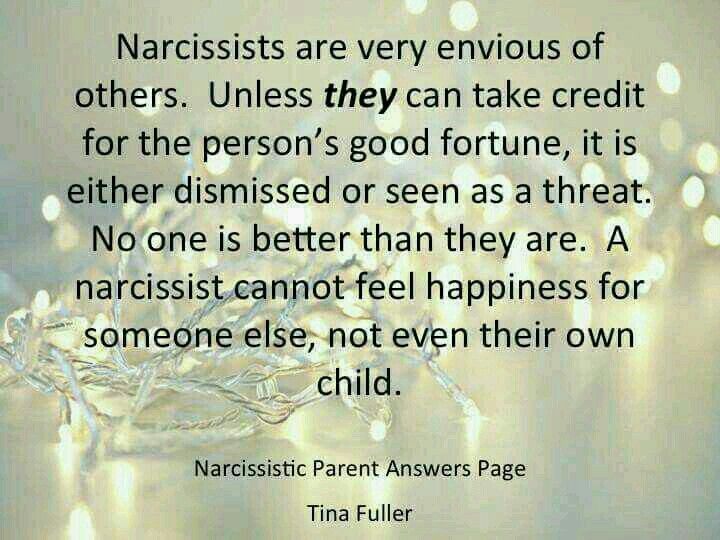
It is common for a narcissistic parent to do this to their opposite-sex child. Narcissistic fathers frequently commit emotional incest with their daughters, and narcissistic mothers do so with their sons. Narcissists always create unrealistically high expectations for their children, and they heap adult responsibilities on them at an early age.
Narcissistic fathers expect their daughters to meet their emotional needs in the same way they expect their spouses to do so. What they’re really trying to do is create a constant source of narcissistic supply that can replace their romantic partner should the need arise. Though narcissists sometimes commit sexual abuse, this is not about sex or power. It’s about wanting someone who will prop up their ego for the long term.
Of course, this is devastating for the daughter. It robs her of her childhood, and it is a confusing message because of the sexual undertones it implies. Even without the sexual abuse, the daughter is effectively taking on the role of mother. This is extremely harmful to her sense of identity, self-esteem, and sense of self-worth.
This is extremely harmful to her sense of identity, self-esteem, and sense of self-worth.
A father has a special relationship with his daughter, just as a mother does with her son. That’s true whether he’s a good father or not. The narcissistic father, unfortunately, can scar his daughter for the rest of her life. He uses her for the narcissistic supply she can give him and to prop up his own ego. It leaves a dark legacy that can perpetuate the cycle of abuse. He manipulates her emotions and uses them against her. There is a way out, but it involves a long journey of healing.
To begin that journey, I would like to offer you my 5 Step Roadmap to Heal Emotional Triggers. It’s a free guide that can help you identify the emotional wounds that created your triggers, defuse those triggers, and even heal those old wounds. I know the toxic effects a narcissistic parent can have on their child, and I really want to help you stop the abuse. If you click on this link, I’ll send this guide directly to your inbox. It will help you heal the wounds left behind by your narcissistic father.
If you click on this link, I’ll send this guide directly to your inbox. It will help you heal the wounds left behind by your narcissistic father.
--
If you want more tips for dealing with narcissists, setting boundaries, and managing emotional triggers, make sure you subscribe to my youtube channelreport this ad
Why Daughters of Narcissistic Fathers Sabotage Themselves (Daddy Issues, Part 5)
Photograph by Tinxi. Standard License via Shutterstock.
(5) Daughters of narcissistic fathers tend to be subject to hypercriticism and high standards that they are rarely able to ‘fulfill’ no matter how hard they try. As a result, they can turn to self-sabotaging behaviors and struggle with a stable sense of identity and confidence.
Daughters of narcissistic fathers have theirsense of self eroded and annihilated in childhood. The daughter of a narcissist candevelop a fragmented identity made out of the very parts the narcissistic father strove to erase as well as the parts he ‘installed’ within her through cruel insults, belittling remarks and a hyperfocus on her flaws to make her doubt her abilities, assets and capacities.
She is taught to second-guess herself at every turn and to excessively scrutinize herself in her talents, her appearance, her potential, and her aspirations. She is also ‘programmed’ to self-destruct in relationships and sometimes even her own goals because she does not develop the sense of worthiness early on that prevents her from reenacting the same traumas she endured in childhood.
If you are the daughter of a narcissistic parent, you were rarely celebrated for who you truly were and what you could accomplish; instead, you were forced to meet impossible, arbitrary and ever-shifting goal posts that instilled in you a pervasive sense of worthlessness.
The hypercriticism and denigration of the narcissistic father has long-lasting effects. It is part of the larger dynamic of psychological maltreatment, which puts children at greater risk for depression, suicidality and PTSD, among other issues such as substance abuse problems, anxiety disorders and attachment problems (LaBier, 2014). A recent study (Spinazzola, 2014) showed that children who suffered psychological abuse showed similar and at times even worse mental health problems than those who suffered physical or sexual abuse.
A recent study (Spinazzola, 2014) showed that children who suffered psychological abuse showed similar and at times even worse mental health problems than those who suffered physical or sexual abuse.
Psychological violence overlaps with the covert, insidious tactics that narcissistic parents use to chronically shame, degrade and belittle their children. The critical voice of the narcissistic parent that the daughter grows up with as a child soon forms an automatic ‘Inner Critic’ that plays like a record in the back of her mind as that child transitions into adulthood(Walker, 2013). Daughters of narcissistic fathers are prone to blaming themselves and may even struggle with self-sabotage, negative self-talk, self-blame as well as various methods of self-harm in adulthood.
It is no surprise that narcissistic parents exploit the accomplishments of their children only to bolster their own egos; anything the narcissistic father praised about you, he tended to do in the presence of a witness.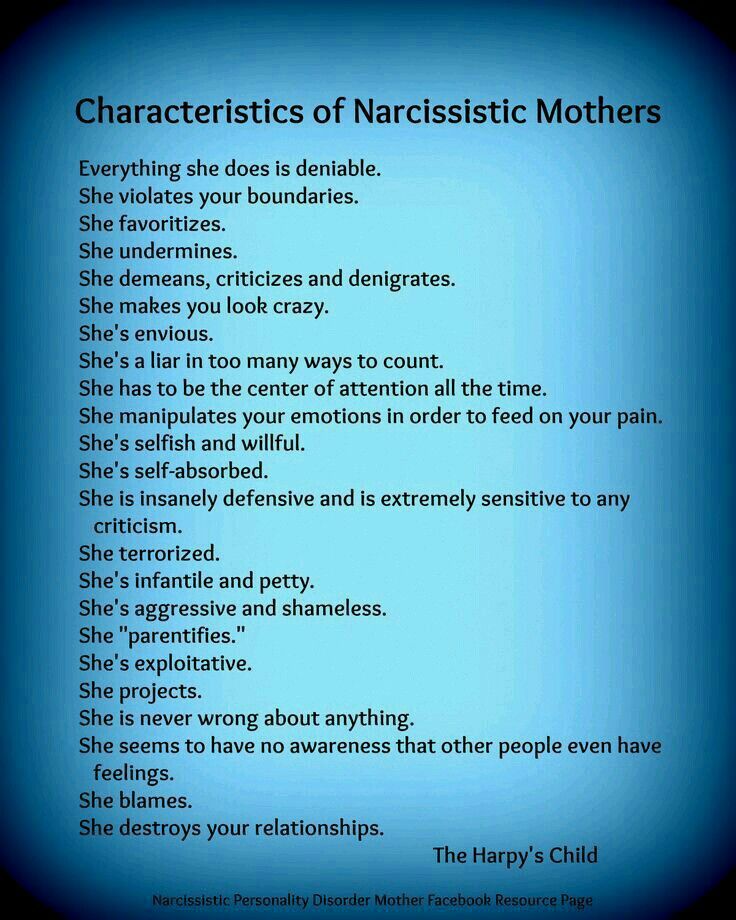 Yet in private, he may have been controlling and abusive towards you.
Yet in private, he may have been controlling and abusive towards you.
He may have trampled upon your dreams, your goals and aspirations, especially if they were not ones he wanted to see you achieving. Or, even if you did follow in his footsteps and expectations, he may have still made you felt as if you were falling short of his standards – never quite being good enough to meet any arbitrary criteria he threw your way.
As a result, daughters of narcissistic fathers canfall into defeatist attitudes about accomplishing goals. They may even go the other route entirely and develop an excessive perfectionism that drives them to be number one at all cost.
Their drive towards an illusion of perfection can easily turn into an unhealthy obsession that affects their mental health as well as self-esteem.
How to thrive:
Get real with yourself about which dreams are yours and which ones are derived from the expectations of your narcissistic father. Did you go to medical school just to please your toxic parent, even though your heart, mind, body and soul ached to be a musician or artist? Did you abandon your dream of becoming a professional dancer just because your narcissistic father pushed you to go to law school? Make a list of aspirations you were never allowed to pursue due to the influence of your toxic parent, as well as any ideologies or beliefs they imposed upon you that you no longer wish to follow. Its never too late to pursue your authentic calling, even if it means reengaging in your passions on the side.
Did you go to medical school just to please your toxic parent, even though your heart, mind, body and soul ached to be a musician or artist? Did you abandon your dream of becoming a professional dancer just because your narcissistic father pushed you to go to law school? Make a list of aspirations you were never allowed to pursue due to the influence of your toxic parent, as well as any ideologies or beliefs they imposed upon you that you no longer wish to follow. Its never too late to pursue your authentic calling, even if it means reengaging in your passions on the side.
Start to celebrate your accomplishments, instead of minimizing them.Daughters of any type of narcissistic parent are used to being criticized at every turn and subjected to moving goal posts that make pleasing their parents impossible. Its time to start validating what youve accomplished so far in your life whether it be success in your relationships, career, self-development or all three.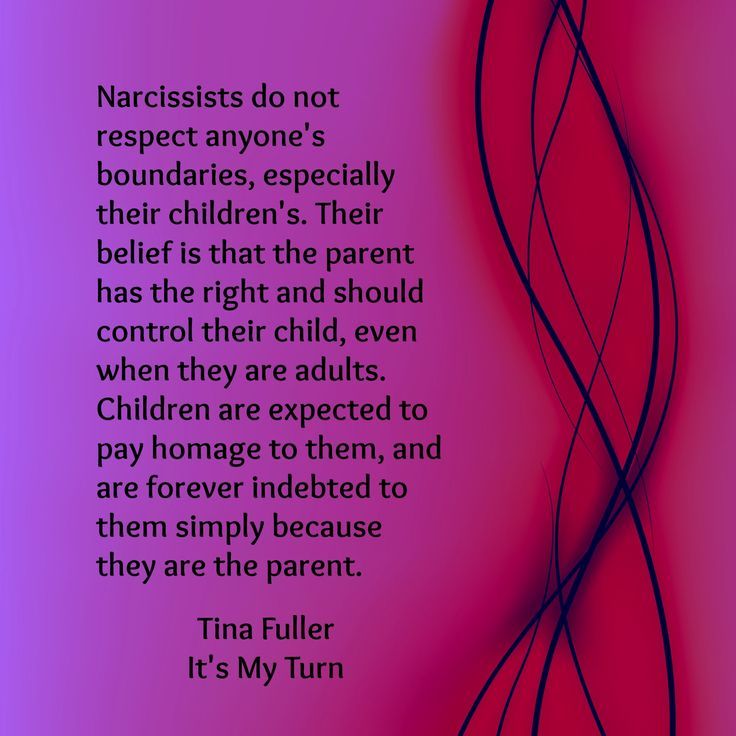
Start recalling the compliments others have given you and instead of dismissing them; begin to integrate them into your own self-perception. Maybe you really are a successful person as your friend says, even though your narcissistic father always berated you for not achieving this or that.
Maybe you really are deserving of a healthy relationship, like your counselor told you. Take pride in the beautiful things others celebrate in you and take note of what you are proud of as well! They all come together to cultivate a healthier self-image.
Release the idea that you have to be perfect in order to be good enough.Consider that there are children who grow up in nourishing and validating family environments where their imperfect selves are still unconditionally loved and respected. Just because we may have had the misfortune to be raised in a different environment does not mean we deserved anything less.
Cultivate a sense of being enough just as you are: use positive affirmations, do self-love and self-compassion meditations such as these on a weekly basis, develop a healthy, accepting relationship with your inner child, engage in loving mirror work, and connect back to a sense of faith or sacred spirituality that reminds you of the divine human being you are.
You have a right to be cherished, loved, seen and heard just like any other imperfect human being in this world.
Never equate the narcissistic abuse of a parent with your level of self-worth. You are truly worthy, with or without the approval of anyone else. You not only survived narcissistic abuse – you can thrive after it.
This article is an excerpt from my new book for children of narcissistic parents, Healing the Adult Children of Narcissists: Essays on The Invisible War Zone.References
A., & Spinazzola, J. (2014, October 8). Childhood psychological abuse as harmful as sexual or physical abuse. Retrieved June 18, 2017, from http://www.apa.org/news/press/releases/2014/10/psychological-abuse.aspx
LaBier, D. (2014, December 15). Childhood psychological abuse has long-lasting impact. Retrieved from http://www.huffingtonpost.com/douglas-labier/childhood-psychological-a_b_6301538.html
Walker, P. (2013).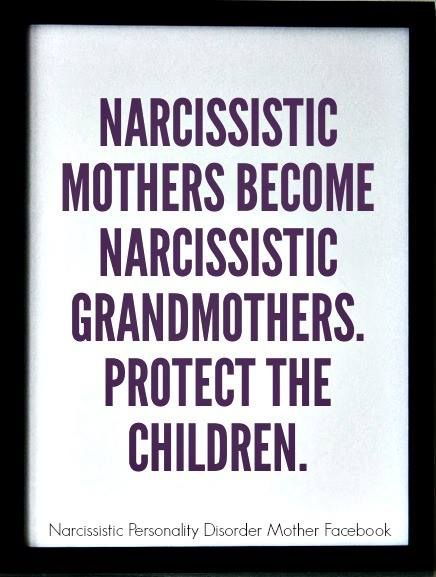 Complex PTSD: From surviving to thriving: A guide and map for recovering from childhood trauma. Lafayette, CA: Azure Coyote.
Complex PTSD: From surviving to thriving: A guide and map for recovering from childhood trauma. Lafayette, CA: Azure Coyote.
This is a five-part series which featured five common obstacles daughters of narcissistic fathers encounter on their journey to healing and how to heal. This is part five of the series. Look forPart 1 here,Part 2 here,Part 3and Part 4 here.
Unloved Daughters and Toxic Fathers: Looking into Mother's Role
Focusing on your father's influence in your life can be easier, and it can also feed into denial of your mother's role, especially the part of it that has shaped your development and behavior. Our deep-seated need for motherly love and support is so strong that it is very easy to look away from the real problem and rationalize, deny, and shift all responsibility to the father.
A reader of my book Detox for Daughter invited me to answer a question in my new book Detox for Daughter Q&A: "My father was a toxic person, but if I only blame him, am I closing my eyes to the role of a mother in this case?"
Personally, I prefer to say who is "responsible" rather than "blame" if we are looking not for revenge, but for answers.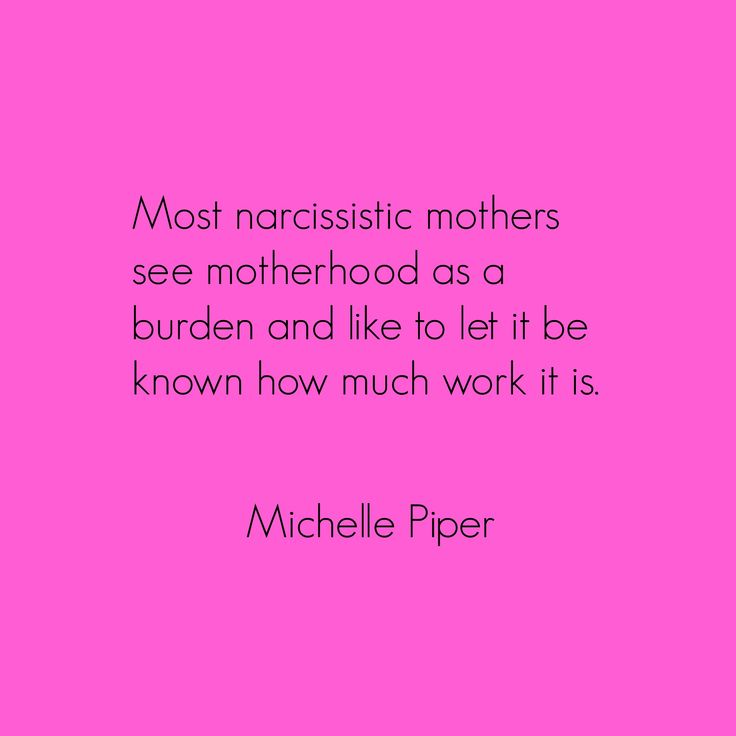 But however we put it, it's a very interesting question, for various reasons, and one of them is what we don't understand about our parents, not only when we were children, but when we are grown up.
But however we put it, it's a very interesting question, for various reasons, and one of them is what we don't understand about our parents, not only when we were children, but when we are grown up.
I mean we will never be old enough to fully understand the relationships within our parents' marriage. After all, we weren't there when they met, we have no idea why they chose to be together, and we didn't witness their life together before we were born. The way we see them is completely shaped by our need for them and how they responded to that need. Neither our deepest feelings for them nor our judgments of them exist apart from the very nature of the parent-child relationship.
As children, there are many things we don't understand about family dynamics. From your position, you could not see what this marriage meant for each of the parties, whether they viewed it as a traditional patriarchal model or as a partnership, because it depended on how they exercised and distributed parental responsibilities. You took what was happening in the family for granted, having no idea that there were other formulas for interaction, you did not ask yourself if you were in a family where problems were openly discussed or any conversation ended in screams and scandals.
You took what was happening in the family for granted, having no idea that there were other formulas for interaction, you did not ask yourself if you were in a family where problems were openly discussed or any conversation ended in screams and scandals.
With no information about how the world works outside the family, you didn't get into thinking about whether this couple is struggling shoulder to shoulder with difficulties or playing the game of "who will quickly shift the blame to whom" at the slightest occurrence of a problem. Instead, you were convinced that the same thing happened in all families: either the screams and insults, or the frightening hiss, or the maddening silence of the boycott. And every detail of what happens will influence the development of your Self. Your parents' marriage is the invisible partner of all family dynamics.
If there is an imbalance of power (for example, financial) or a constant source of disagreement, this will undoubtedly affect the children and the attitude of each parent , this is how one of my readers describes it:
, I was terribly afraid of my father's hot temper and literally tiptoed around him. My brother tried to resist him and paid for it. But even then, my mother didn't raise her voice and take our side. You know that old TV show "Daddy Knows Better"? And although it was already the 80s, my mother still allowed me to wipe my feet on her and looked into his mouth. And I hold her accountable for allowing violence."
My brother tried to resist him and paid for it. But even then, my mother didn't raise her voice and take our side. You know that old TV show "Daddy Knows Better"? And although it was already the 80s, my mother still allowed me to wipe my feet on her and looked into his mouth. And I hold her accountable for allowing violence."
Another daughter looks at the situation from the opposite point of view, protecting her mother as much as possible:
“I sincerely believe that my mother was afraid of him just like we are. She is a timid person with not very high self-esteem and although it is true that she did not do the best motherhood, she was quite aloof, it was much easier to deal with her than with His Majesty the Father. As an adult, I immediately drove a thousand miles away from both of them and see them occasionally. However, I believe that the lion's share of the blame lies with him, and not with her.
Unloving fathers are easier to talk about (and easier to blame).

Although the Commandment tells us to honor both father and mother, there is still a cultural standard for each of them. Admitting that your father was unloving, absent, or tyrannical elicits very different reactions if you say the same about your mother. The maternal myth that all women are caring, that motherhood is the nature of a woman, that all mothers unconditionally love their children - has no analogues for fathers.
There are many stories of bad and even terrible fathers - including the raging King Lear, the tormented James Tyrone in the drama Long Journey Into Night, Bull Meechan in the movie The Great Santini - all of these images in culture give us permission to speak in this vein. about the problem of fathers. Secondly, the theme of "daughter duty", which is tied to a lot of guilt and shame for an unloved daughter, works differently for mother and father.
In her book "Our Fathers, Our Selves", in a subjective study of fathers and daughters, Dr. Peggy Drexler notes that "despite the achievements, despite the freedom won, women still cannot free themselves from the need to forgive their fathers and, by committing this act of forgiveness, they convince themselves that they are still loved by them. " Analyzing her sample of about 75 women, the researcher also comes up with a harsher verdict: “... no matter how selfish, boring, narcissistic, or outright cruel in the descriptions of these men, their daughters were ready, if not to forget, then forgive." I'm not sure I will necessarily agree with the part about forgiveness, but the truth is that For many daughters, fathers' internal evaluation standards are different from mothers' evaluations.
" Analyzing her sample of about 75 women, the researcher also comes up with a harsher verdict: “... no matter how selfish, boring, narcissistic, or outright cruel in the descriptions of these men, their daughters were ready, if not to forget, then forgive." I'm not sure I will necessarily agree with the part about forgiveness, but the truth is that For many daughters, fathers' internal evaluation standards are different from mothers' evaluations.
But there are pitfalls in this alignment, focusing on the influence of the father on your life can be easier, it can also feed the denial of the role of the mother, especially the part of her that has shaped your development and behavior. To reiterate, our deep-seated need for motherly love and support is so strong that it is very easy to look away from the real problem and rationalize, deny, and shift all responsibility to the father. More precisely, When you begin to understand the dynamics of your family more objectively, you will see how each of the parents acted: both in tandem and on their own.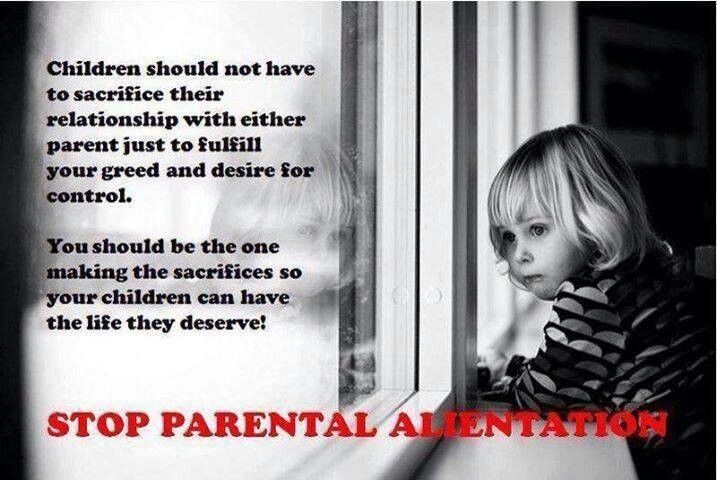
Subscribe to our YOUTUBE channel!
Consider the mother in the context of events.
To understand how to interact with each of the parents, it is necessary to realize their responsibility. If your father was a tyrant and mocked you, then a lot depended not only on what your mother did, but also on what was her motivation. Did she see him as a comrade in arms, or was she just a silent witness, due to the lack of strength and courage to resist him? As adults, we can already look at the relationship between parents with some understanding and appreciation that is simply not available to a child or teenager. As, for example, one reader bitterly wrote to me about this:
“Now I see that my mother thought that endless criticism and authoritarian thinking in the style of “everything should be just as I said” were a sign of father’s strength, and not violence. Her own father was the same, which is why I think she accepted the role of my father's wife so easily. But I do not think that this justifies her attitude towards me and her brother, when she echoed him in everything. They were partners in cruelty. That's the whole point."
But I do not think that this justifies her attitude towards me and her brother, when she echoed him in everything. They were partners in cruelty. That's the whole point."
Even what may seem like passivity and inaction on the part of the mother, when the father is a controlling tyrant with narcissistic traits, can affect the daughter's development to a very large extent and make it difficult for her to cope with family dynamics. If your mother somehow signaled you to disappear and not shine, not to be seen and not to stick out, she taught you not to put yourself in the first place, essentially repeating the lesson taught by the abusive father.
Very often daughters grow up believing that there is only one villain in the play, but the road to healing always requires a clearer and more balanced vision of the problem Our Fathers, Our Selves: Daughters, Fathers, and the Changing American Family. New York: Rodale Press, 2011.
Author Peg Streep
Translated by Julia Lapina
Subscribe!
P.S. And remember, just by changing your consciousness - together we change the world! © econet
What is the problem of narcissistic people and how narcissism destroys life
Narcissists really have greater psychological stamina, are less prone to depression and stress / Photo: https://pixabay.com
Scientists are sounding the alarm: there is an epidemic in the world narcissism. And this means that such people with a high degree of probability will not start a family and will not give birth to children, but will devote their lives exclusively to themselves. In addition, people who are prone to excessive narcissism tend to manipulate and subjugate others. With the help of experts, we found out the reasons for this trend, and also learned why you should not confuse everyday and clinical narcissism.
Narcissists find it difficult to start families and raise children, and they themselves have a negative impact on others. Vechernyaya Moskva asked experts what the problem is with narcissists.
Society dictates
One of the reasons that narcissism in society is progressing is the recently popular expression “you must love yourself,” says clinical psychologist Mikhail Khors.
— From the pages of popular publications, from Internet sites, TV channels and radio broadcasts, experts insistently urge you to accept yourself as you are, — says the psychologist. - Do not complex, do not dwell on your shortcomings. On the contrary, every morning in front of the mirror, remind yourself of your attractiveness. Like, until you love yourself, no one will love you.
But a narcissist is a person with psychological problems. As a result of such daily trainings, his perception of his own person ceases to be adequate.
— That is, he begins to love himself not as he really is, but as he imagined himself to be. And then - I have to constantly assert myself so that self-esteem does not fall. As a rule, the narcissist asserts himself at the expense of others. That is, he deliberately belittles those around him in order to seem better against their background, - says Mikhail Khors.
And then - I have to constantly assert myself so that self-esteem does not fall. As a rule, the narcissist asserts himself at the expense of others. That is, he deliberately belittles those around him in order to seem better against their background, - says Mikhail Khors.
Moreover, the narcissist will not work on himself in other ways and strive to really become better, more educated. He chooses the path of least resistance: either he finds a social circle where he is the leader, or he begins to morally “destroy” those around him through pressure, through humiliation or provoking guilt in them, thereby causing others to feel inferior.
- And if such a "friend" does not agree with something, criticizes the narcissist - they say goodbye to him easily and quickly, they literally throw him out of his life, - says the psychologist.
Social network stars
As a rule, the narcissist is also very active in social networks in order to assert himself. So for others, he creates the illusion of an ideal life. Basically, he publishes beautiful photos and tells stories about his life. And not always true.
So for others, he creates the illusion of an ideal life. Basically, he publishes beautiful photos and tells stories about his life. And not always true.
- At first glance, it seems that such activity does not bother anyone, - says Mikhail Khors. - Like, a person likes to constantly publish their pictures and tell subscribers about every step taken - well, let them. However, this habit of his is actually not so harmless: it can harm impressionable and vulnerable people. So, one of my clients watched the life of her former classmate through the social network for a long time. She constantly posted photos from vacations, from expensive restaurants, described her life in the most attractive colors: supposedly her husband was perfect, and her children were talented. As a result, this client, of course, began to envy someone else's happiness. And she began to project all these virtual stories onto her own life. She believed in everything that her friend wrote so much that it began to seem to her that her husband and children were far from perfect. The house began to nitpick, scandals ... Psychological therapy was needed for this woman to finally understand that such photographs often do not reflect reality in any way - usually this is an ordered professional photo session. And publications about an ideal life are just a banal way to splurge. All this, as a rule, is done for show. And it is likely that in real life - in between publications on the network - exactly the same scandals occur in this family, there are problems that simply cannot be flaunted.
The house began to nitpick, scandals ... Psychological therapy was needed for this woman to finally understand that such photographs often do not reflect reality in any way - usually this is an ordered professional photo session. And publications about an ideal life are just a banal way to splurge. All this, as a rule, is done for show. And it is likely that in real life - in between publications on the network - exactly the same scandals occur in this family, there are problems that simply cannot be flaunted.
Children believe in beautiful pictures
Narcissus likes to post his personal photos on social networks. Of course, only the most successful ones.
- Modern applications allow you to make yourself perfect skin, hair, "put on" expensive watches and jewelry on your hand ... Of course, an adult is well aware of the so-called glossy magazine effect - that is, a deceptive edited picture that has little to do with reality. But the child is vulnerable in this case,” says Mikhail Khors.
An immature person will believe that their favorite actor or actress looks the same in everyday life as in photographs. But something is probably wrong with them themselves ... After all, idols have neither acne nor excess weight, and the clothes are always perfectly matched. Only now, the child may not know that there is a whole team of professionals behind one such shot - a makeup artist, photographer, stylist, graphic designer, and so on.
— Due to the fact that a teenager compares himself with his idol or some other, in his opinion, ideal outwardly person, his self-esteem drops, an inferiority complex develops. This age is already difficult: there is a hormonal restructuring of the body, a crisis of self-determination. As a result, after looking at the perfect photos of idols, a teenager can bring himself to anorexia. In extreme cases, self-doubt can even lead to suicidal thoughts.
Therefore, it is very important for parents to take the time to review the photos of these stars together with their child, the psychologist recommends.
— Of course, in today's world it is not possible to completely restrict a child's access to the Internet. If desired, he will be able to access the network secretly. Therefore, more reasonable measures must be taken, the expert advises.
For example, look at pictures of stars together and explain that this picture is fiction. That in everyday life this person can look completely different: without styling, makeup and outfit, you can’t distinguish a star in the crowd from an ordinary passer-by. But just one such conversation is not enough. We need to be patient and often, while at home, question the ideal image of celebrities.
A couple of narcissists will not get along together
Normal healthy family relationships with a person suffering from narcissism are difficult to build, says Gestalt therapist and child psychologist Anfisa Kalistratova.
— A narcissistic partner is cold, constantly demanding increased attention, — says the psychologist. - From his half, he expects admiration and sacrifice. Although he is not ready to give anything in return. These are the people who are used to receiving care and attention. And their partners, in turn, become the so-called energy donors. Often, a narcissist can humiliate his chosen one, leading to mental exhaustion.
- From his half, he expects admiration and sacrifice. Although he is not ready to give anything in return. These are the people who are used to receiving care and attention. And their partners, in turn, become the so-called energy donors. Often, a narcissist can humiliate his chosen one, leading to mental exhaustion.
Partners, in turn, at first sacrifice some of their principles, bend. But at the same time, they still maintain a relationship with a narcissist for a long time.
“Even if others say that they are in an unhealthy, co-dependent relationship, and their partner behaves strangely, they do not believe in it for a long time, they deny it,” continues Anfisa Kalistratova. - But over time, such people still wonder: what is wrong in my relationship? After all, in their opinion, they did a lot in order to maintain their union and brighten up the life of their beloved. But there is no positive result. And in this case, they reach the so-called bottom: they realize that they have fallen into the trap of a manipulator. It can take years to get to this point. And after that, the victim of the narcissist needs a long therapy. It can be difficult for them to build new relationships in the future.
It can take years to get to this point. And after that, the victim of the narcissist needs a long therapy. It can be difficult for them to build new relationships in the future.
But two daffodils can't get along with each other. Their relationship will not survive the constant struggle with each other for dominance and attention. Everyone will try to pull the blanket over themselves, but none of the partners will obey.
Inherited
As a rule, narcissists rarely decide to start a family. Usually they live only for their own pleasure and are not ready to share it with others. Therefore, their parents are cold and distant. Children develop what is known as narcissistic trauma. They may experience a lack of care and attention.
“People who are in love with themselves are not able to give feelings to others, including their children,” explains Anfisa Kalistratova. - Therefore, over time, their children can either grow up as notorious personalities, or, conversely, become the same egoists. They will strive to become like their parents. That is, in the same way in the future they will begin to put themselves above others.
They will strive to become like their parents. That is, in the same way in the future they will begin to put themselves above others.
Moreover, there is a possibility that the daughters or sons of narcissistic parents will look for a mate to match their mothers or fathers. And it won't lead to anything good.
- In this case, they will always be in search of the same supposedly ideal, impeccable people. But in the end they will not find such - after all, every person has his own shortcomings. And the child of a narcissist, by the way, firmly believes in the uniqueness of his parent - this is how he was inspired from early childhood. Therefore, the search for the same beautiful person can be delayed until this child understands that all ideality is just an illusion, the psychologist said.
Children of narcissists may also develop a pathological fear of shame. To avoid a negative reaction from others, they can unquestioningly fulfill their every whim. The danger of a narcissistic disorder is that in the future such people are more prone to depression and drug use.
To get rid of it, you need to learn to ask.
According to clinical psychologist Yana Tolmacheva, narcissists often admit that it is difficult for them to ask for something from another person.
- All because they feel shame. It seems to them that in this way they show their weakness and inability to live, - says the psychologist. “For them, asking someone else for help is humiliating. At the same time, narcissists may argue that the people around them are insensitive and cannot offer their help themselves. However, they need to be explained that other people are not able to guess their needs.
Thus, one way to get rid of narcissistic disorder is to silently talk about the feelings that arise at the moment when you need to ask for help.
- As a rule, as a result of such therapy, the narcissist manages to independently understand that turning to another is not a sign of weakness, but a common routine. And because of such the smallest requests, self-esteem should not suffer, - says Yana Tolmacheva.
TOP-5
Signs of unhealthy complacency
— Every new space is perceived as a potential photo session.
— Among the narcissist's environment are only people who admire him and agree on everything. The rest he avoids.
— The social network supplants all other human interests.
- He literally lives in a virtual world.
- A bad photo causes irritation.
- Depends too much on other people's opinions.
REFERENCE "VM"
Experts say that narcissistic personality disorder occurs in childhood for two reasons. Or because of too good and reverent attitude from the parents. Or, on the contrary, due to tensions in the family. At the same time, the first option is more widespread: many children begin to believe in their superiority because of the constant praise from their parents. But those who were not bestowed with love, on the contrary, can convince themselves of their impeccability.
Selfishness reigned
Narcissism is directly related to such phenomena in society as a decrease in the number of marriages, an increase in cases of divorce and voluntary refusal to have children. Alexander Sinelnikov, Professor of the Department of Sociology and Demography of the Faculty of Sociology of Moscow State University named after M. V. Lomonosov, came to such conclusions.
A study by the Department of Sociology and Demography of the Faculty of Sociology of Moscow State University named after MV Lomonosov showed that narcissism is most often characteristic of people who have a high place in the system of life values is personal freedom and independence.
“And this quality, of course, hinders the creation of a family,” says Alexander Sinelnikov, professor of the department. - Narcissists do not want to share a roof over their heads with someone - this, in their opinion, is an infringement of freedom. And if they are already in a relationship, then they are in no hurry to register them officially.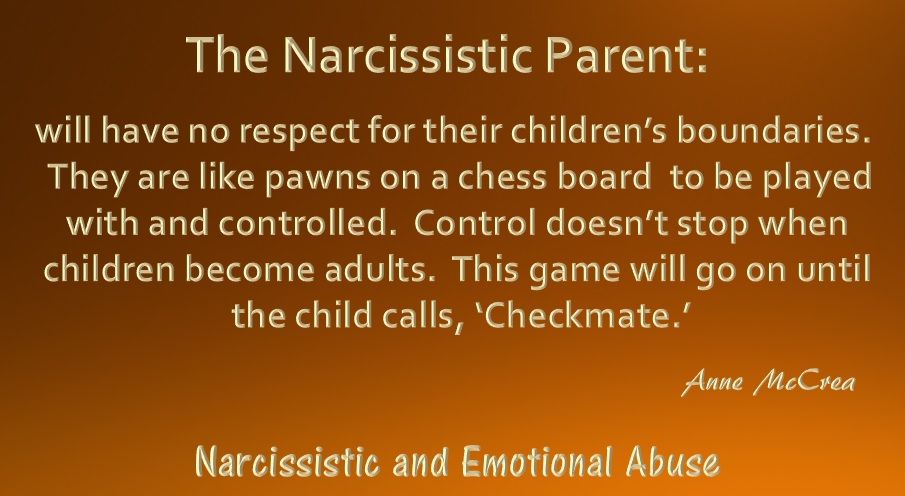 Even if narcissists decide to take such a responsible step, such marriages often end in divorce: it is difficult to get along with a selfish person. And they are in no hurry to create a family again, as this again can put them in a dependent position.
Even if narcissists decide to take such a responsible step, such marriages often end in divorce: it is difficult to get along with a selfish person. And they are in no hurry to create a family again, as this again can put them in a dependent position.
Alexander Sinelnikov notes that in recent years the number of people living in a civil marriage or refusing to register a relationship has been growing. The number of childless women is also on the rise. And an indirect sign of the emergence of this trend is, among other things, the so-called wave of narcissism.
“Most of those who hold such views on life are the generation of the only children in the family born in the 1990s,” says Alexander Sinelnikov, professor of the department. - For example, in Soviet times, the interests of the collective were taken higher than the interests of one taken individual. Now this ideology has long ceased to be predominant and has lost popularity. But in its place, no other appeared that would help people to stop putting their own interests above all else.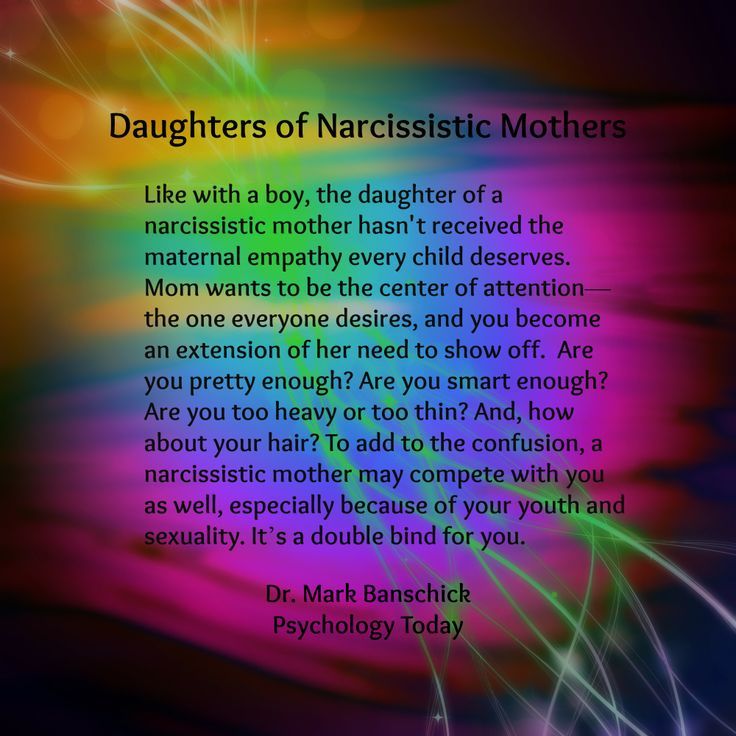 At 19In the 1990s, a general "egoization" of the population reigned, especially among young people. All old values collapsed, and new ones did not appear.
At 19In the 1990s, a general "egoization" of the population reigned, especially among young people. All old values collapsed, and new ones did not appear.
In the West, this began to happen even earlier, the expert says.
- Now in many European countries, by the age of 50, no more than half of men and women enter into legal marriage. They either prefer cohabitation or just live alone. For example, a study conducted in Germany showed that 25 percent of women born in 1968 had not given birth to a single child by the age of 50, says Alexander Sinelnikov.
The sociologist suggests that this trend may become typical for our country over the years.
- Since the end of the last century, the birth rate has been declining. But there is a positive moment - the state began to financially support families, - says the expert.
Narcissist is difficult to recognize
Alexander Fedorovich, psychiatrist:
— Narcissism should not be confused with banal narcissism.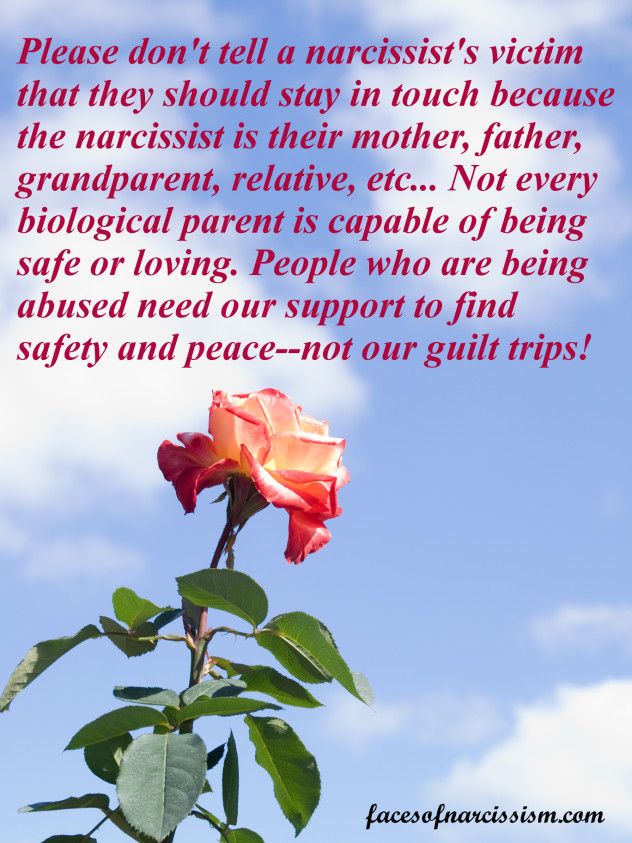 The first is a diagnosis, a mental personality disorder. Not even every specialist can diagnose it - you need to have certain knowledge and experience. The second is the manner of behavior, which is characteristic of many people. I will give an example of an unhealthy manifestation of narcissism: a person reduces everything that happens in the outside world to his personality, believes that everyone around him thinks and talks only about him, he is convinced of his uniqueness. His behavior is demonstrative - in a word, he does everything for show. Often such traits are characteristic of representatives of the creative intelligentsia.
The first is a diagnosis, a mental personality disorder. Not even every specialist can diagnose it - you need to have certain knowledge and experience. The second is the manner of behavior, which is characteristic of many people. I will give an example of an unhealthy manifestation of narcissism: a person reduces everything that happens in the outside world to his personality, believes that everyone around him thinks and talks only about him, he is convinced of his uniqueness. His behavior is demonstrative - in a word, he does everything for show. Often such traits are characteristic of representatives of the creative intelligentsia.
But if a person just cares about his appearance a little more than usual, strives to look good, spends a lot of time in front of a mirror - this is not yet narcissism, although in everyday life such habits are often called that way.
Self-admiration is normal if it does not force a person out of ordinary life in any way. For example, a narcissist is so obsessed with their appearance that they feel the need for constant admiration. Demands this from others. Therefore, it all comes down to the fact that his circle of friends is only those people against whose background he feels special, the smartest, the most beautiful. In any other company, narcissists feel uncomfortable.
Demands this from others. Therefore, it all comes down to the fact that his circle of friends is only those people against whose background he feels special, the smartest, the most beautiful. In any other company, narcissists feel uncomfortable.
And, getting into a new space, people obsessed with themselves, first of all, look for interiors and angles in order to take a picture and post a new card on their page on a social network. If the pictures are unsuccessful, they are sincerely upset, annoyed. The narcissist perceives each of his appearances or meetings with friends as an occasion for publication.
But it is worth noting that if such habits are observed in adolescents, this is not yet a cause for concern. But if a person over 20 years old literally lives on Instagram, this is already a deviation ... Of course, in the modern world, many people post photos from their lives online. But if this happens several times a week - this is absolutely normal, there is nothing to worry about.